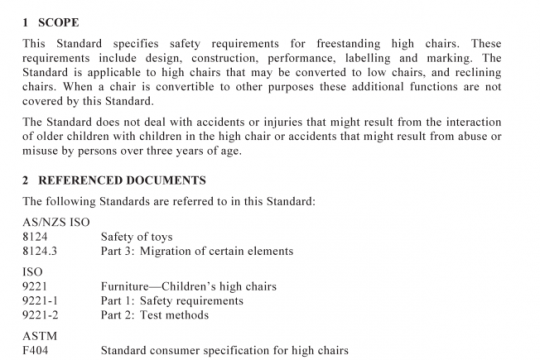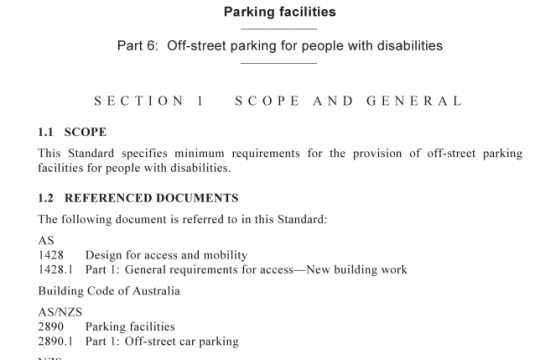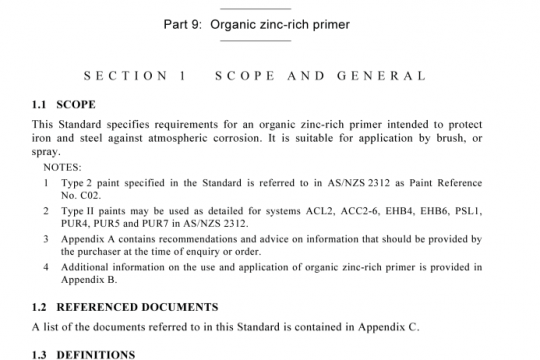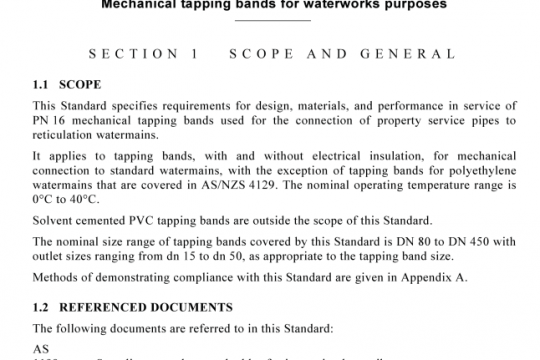AS NZS 3580.2.2:2016 pdf free
AS NZS 3580.2.2:2016 pdf free.Methods for sampling and analysis of ambient air
Reference material characterized by a metrologically valid procedure for one or more specified properties, accompanied by a reference material certificate that provides the value of the specified property, its associated uncertainty, and a statement of metrological traceability. The reference material certificate to be provided by a laboratory accredited by signatories to the International Laboratory Accreditation Cooperation (ILAC) through their Mutual Recognition Arrangement (MRA) and/or produced by National Metrology Institutes (NMIs) and included in the Bureau International des Poids et Mesures (BIPM) key comparison database (KCDB).
NOTE: In Australia, ILAC (MRA) accredited bodies include National Association of Testing Authorities (NATA) and in New Zealand they include International Accreditation New Zealand (IANZ).
The gas cylinder could potentially be exposed to low temperatures during storage and transportation. For gas mixtures containing condensable components, (e.g. high molecular weight hydrocarbons), it is important that the cylinder is not stored or transported at temperatures below those recommended by the CRM provider. If the mixture is exposed to temperatures below the stated range, some components may condense and this will change the composition of the mixture. If the mixture has been exposed to temperatures lower than those recommended by the CRM provider, the certificate from the CRM provider may be no longer valid. Homogenizing and checking the mixture before usage may be required.
Elevated temperatures may result in decomposition of thermally unstable species. Avoid direct exposure to sunlight as this may also heat the cylinder. Avoid high temperatures (heating) close to the cylinder, e.g. from welding flames, blowlamps, ovens or other intense heat sources. High temperatures will result in higher pressures leading to potentially hazardous situations. Cylinders shall not be heated above 45°C.
Gas cylinders shall be protected from excessive humidity during transport. Transportation by boat may result in the cylinder being sprayed with water; this and/or excessive humidity may cause corrosion of the cylinder valve. The cylinder shall be protected from precipitation to prevent corrosion. If the cylinders are stored outdoors, they should be protected by a roof and the cylinder base should also be protected from water accumulating on the floor by raising it above the ground.AS NZS 3580.2.2 pdf free download.




